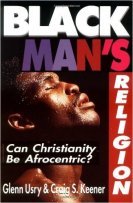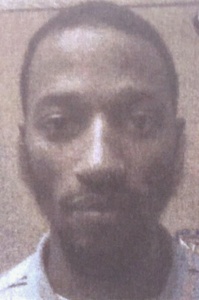“Hebrew Israelite” groups gather and proselytize in metropolitan areas. This group is usually made up of black and brown Americans who claim to be the true Israelites and that modern day Jews are impostors. Their presence has been more noticeable over the past 2-3 years. They have stepped up their efforts and are growing locally. This is a current cultural issue, especially in the urban community in Phoenix.
If you live in a major city and haven’t met a “Hebrew Israelite” yet, give it time – you will. Whether clad in camo or purple and gold, the Hebrew Israelites go where you go. Yelling, swearing, debating, pointing, and loudly pontificating; they go hard. The light rail stop at Camelback and 19th in Phoenix is a favorite spot. I’ve seen them at the State Fair, Super Bowl XLIX, ASU, and Occupy Phoenix protests. They’ve been known to storm in churches and disrupt services.
Some think this group is so obscure, they’re irrelevant. Amar’e Stoudemire disagrees. The former Phoenix Sun and NBA star identifies as a Hebrew Israelite. When SB1070 (a controversial immigration bill) was the hot topic in Arizona, Stoudemire tweeted out his disagreement with the legislation. The reason? The “Latin community” is part of “the 12 ttribes of Israel,” which is, “one nation under Yah.” Stoudemire is an executive producer of “Village of Peace”, a documentary about Chicago-based Hebrew Israelites moving to Israel in the 60’s. He’s applied for Israeli citizenship and is part owner of an Israeli basketball team. I could go on: St. Louis rapper Chingy of “Right Thurr” fame and Antoine Dodson of “Bed Intruder” fame both came out as Hebrew Israelites. Boyz II Men crooners Shawn Stockman and Wayna Morris claim this faith. Hebrew Israelite influence outweighs their numbers.
If you run into a “Hebrew Israelite”, you’d be wise to know what they believe. Even though they often yell and curse, knowing something about their ideology can assist you in having a more productive dialogue.

10 Hebrew Israelite Beliefs
1: “Hebrew Israelites” believe those whose ancestors were put in bondage during the Trans-Atlantic Slave Trade are the true descendants of Biblical Israel.
2: “Hebrew Israelites” believe modern day Israelites and Europeanized Jews are impostors and not the real descendants of true Israel.
3: “Hebrew Israelites” usually hold the King James Version of the Bible as authoritative. Some only hold to the Old Testament. Most hold to the Apocrypha as well.
4: “Hebrew Israelites” believe the “time of the Gentiles” means “the time of the white Europeans”, whom they refer to as Edomites. They believe this time is almost over; America and its allies will soon be judged.
5: “Hebrew Israelites” believe righteousness is achieved by keeping the Law. Strict Sabbath-keeping, dietary restrictions and a certain physical appearance is important (e.g., beards are good).
6: “Hebrew Israelites” believe Jesus Christ (although they use a different name for him) was a black man.
7: SOME (not all) “Hebrew Israelites” believe “Edomites” (white people) can’t be saved. They are destined to be slaves for Hebrew Israelites after the Messiah returns. Others believe that “Gentiles” (non-Hebrew Israelites) can be grafted into the Kingdom if they keep the law and are under the authority of a Hebrew Israelite.
8: “Hebrew Israelites” believe both heaven and hell are conditions – mere “states of mind”. Neither are viewed as metaphysical realities as they are in orthodox Christianity.
9: “Hebrew Israelites” believe you must refer to God as some other name and Jesus as some other name but their preference depends on their individual sect (which they call “camp”).
10: “Hebrew Israelites” believe by spreading their message they are helping to gather the scattered Israelites who do not yet know the truth of their ancestry and heritage.
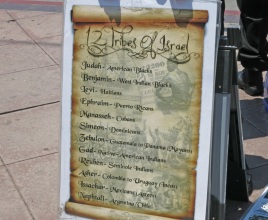
Five Common Practices/Characteristics
1. The “Hebrew Israelites” members on the street tend to be boisterous, belligerent and bold. They blurt, blare and bellow. If you engage a member on the street, be prepared for a noisy encounter. They often enjoy shouting obscenities at pedestrians and onlookers, especially those whom they deem to be morally repugnant (e.g., women wearing pants, black-and-white couples, etc.).
2. “Hebrew Israelites” craft their own signage. Common images include politicians with devil horns, “white Jesus” portrayals, images of slavery (men with scarred backs, slave ship diagrams, etc.) and the all-important 12 Tribes of Israel genealogy chart. For example, the Tribe of Judah are said to be the ancestors for black folk,
Isaachar for Mexicans and Gad for North American Indians.
3. “Hebrew Israelites” travel in groups. I’ve seen anywhere from three to a dozen congregate.
4. “Hebrew Israelites” members love to carry tattered old Bibles. Their message is often peppered with various Scripture passages. Usually, there is a primary speaker and then a Scripture reader. The speaker will shout a verse to the reader, then the reader yells it out – loudly.
5. Most “Hebrew Israelites” will engage you – to a certain extent. If they view you as “having a demon” (a common accusation they make against opponents), they will act dismissive and aggressive. If they see you as interested (but not too “talky”), they love the chance to lecture and even “cross-examine.”

If you are a Christian, you should engage “Hebrew Israelites” when you see them. Why? They will benefit from well-informed brothers and sisters in Christ dropping knowledge. If you call yourself a Christian but don’t know your stuff, study up and come back later – they eat the biblically ignorant alive!
Remember, it’s not just knowledge they need; the “Hebrew Israelites” need to see authentic love, joy, peace, kindness, goodness, gentleness, faithfulness, self-control and patience. If you are going to converse with them, ask the Lord for a double-dose of the last one – patience.
If you know the Bible well and are quick on your feet, they may show some extra respect to you, but then again, they may become more irritated than usual – it all depends on the makeup of the group and the nature of the crowd. As you can imagine, engaging a Hebrew Israelite in this environment can be intimidating.
My main goal in this piece was to give the reader the basic about the “Hebrew Israelites”. It is not intended to be an all-out rebuttal; I’m writing more in the vein of “heads up, they are coming at you.” In the future, I’d love to tackle some of the truth claims “Hebrew Israelite” adherents make.
________________________________________________________________

Vocab Malone
Phoenix, Arizona
Tags: apologetics, Apologist, BHI, Black Hebrew Israelites, christian, Hebrew Israelites



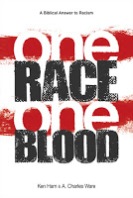

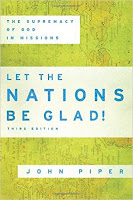
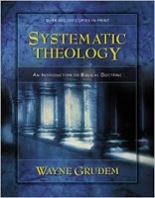
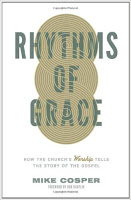

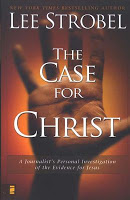



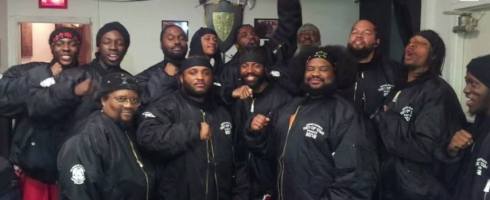
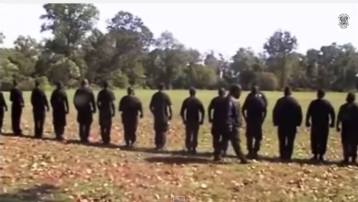
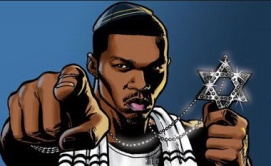
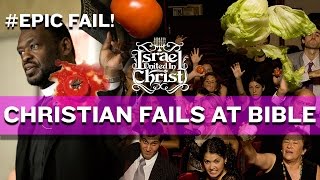
 d of teaching – “Hebrew Israelite” doctrine – which is becoming a serious hindrance towards young black and brown men in the inner city from coming to Christ. They target “minorities” and are thriving in the inner-city. I ran into them on the street and had an hour long debate. I
d of teaching – “Hebrew Israelite” doctrine – which is becoming a serious hindrance towards young black and brown men in the inner city from coming to Christ. They target “minorities” and are thriving in the inner-city. I ran into them on the street and had an hour long debate. I 